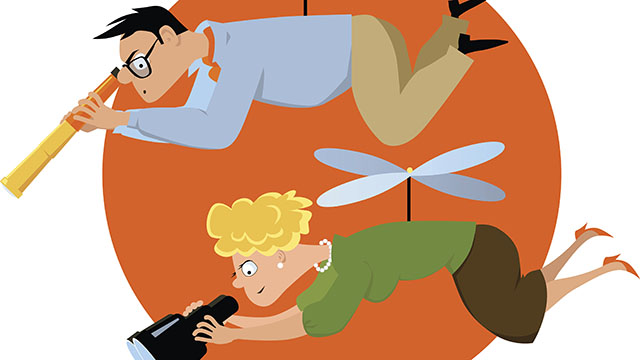Growing up in Germany in the 1970s and 1980s, Matthias Doepke recalls parenting being very relaxed. “My parents expected us to show up for meals, go to school and be home before dark, but other than that, we had a lot of freedom.”
Doepke, a professor of economics in the Weinberg College of Arts and Sciences at Northwestern University, thought his own parenting style would be similar.
“The reality is that I am now a much more intensive parent who spends a lot of time on parenting, just like most other American parents today,” he said.
In a new book, “Love, Money, and Parenting: How Economics Explains the Way We Raise Our Kids” (Princeton University Press, February 2019), Doepke and co-author Fabrizio Zilibotti of Yale University, through personal anecdotes and original research, show that in countries with increasing economic inequality, such as the United States, parents push harder to ensure their children have a path to security and success — a point the authors consider a key takeaway from the book. Economics has transformed the hands-off parenting of the ’60s and ’70s into a frantic, overscheduled activity.
Furthermore, growing inequality has also resulted in an increasing “parenting gap” between richer and poorer families, raising the disturbing prospect of diminished social mobility and fewer opportunities for children from disadvantaged backgrounds.
A few years ago, Doepke and Zilibotti developed a model that provides an economic explanation for why different parents choose different parenting styles (such as authoritarian, authoritative or permissive parenting). They started to look at data on parenting across countries and realized that their economic approach explained a lot about why parenting differs around the world.
“Moreover, there turned out to be very little existing work aiming to understand, from any perspective, the large differences in parenting cultures over time and across space,” Doepke said. “We saw an opportunity to write a book that explores this issue in much more depth, by looking at data from many countries, zooming in on specific cases, and also exploring additional issues such as the dimensions of gender, fertility choice, historical class differences and the role of public policy in shaping parenting.”
The authors’ view is that most parents are doing the right thing given the economic (and other) circumstances that they and their children face. However, problems and concerns remain.
“We argue that parents respond to the environment they face, and depending on what that environment is, there can be outcomes that are socially problematic even if most parents do the best they can,” Doepke said. “In the U.S. today, the biggest concern is inequality in parenting, or what we refer to as the ‘parenting gap’ between social classes. An additional concern is that if we think of the upper-middle class, parenting may have turned into a zero-sum game, where a lot of anxious parents and their children put a lot of time and effort into excelling in school, extracurricular activities and more general resume building to win one of a limited number of slots at elite colleges.”
The authors see similarities in parenting styles around the world once the economic environment is taken into account.
“There is a lot of debate about ‘intensive’ parenting in the U.S. today, with phenomena such as ‘tiger moms’ and ‘helicopter parents,’” Doepke said. “But the data around the world shows that these trends are not unique to the U.S. — the intensity of parenting has gone up in many countries in line with rising inequality, and in countries with even higher inequality than the U.S. such as China, parenting is even more intense than here.”
The hopeful implication of the book, according to the authors, is that concerns surrounding economic opportunities can be addressed by changing the environment that parents face, through policies ranging from early childhood education to college admission policies.
“Evidence from other countries show clearly how policy choices in these areas can lead to very different outcomes,” Doepke said.


